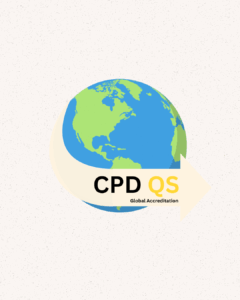Have you ever completed a training session, only to wonder later if it truly made a difference to your work? Many professionals face this challenge, hours spent learning, yet little change in daily practice. That is where the CPD cycle comes in.
Rather than approaching professional development as a checklist, the cycle turns it into a purposeful process. It helps you choose the right activities, apply them effectively, and prove their value, not just to regulators, but to yourself and the people you serve.
In the UK, many regulators such as the General Medical Council (GMC), the Nursing and Midwifery Council (NMC), the Solicitors Regulation Authority (SRA) and Social Work England expect professionals to engage in CPD that follows a reflective, planned approach. While the specific requirements differ by profession, the underlying principles are remarkably consistent.
The Five Stages of the CPD Cycle
- Identify Needs
Start by reviewing your current role, responsibilities and any regulatory requirements. Consider:- Changes in law, technology or industry standards
- Skills gaps highlighted in performance reviews
- Feedback from clients, colleagues or service users
Tip: Keep this stage evidence-based. Refer to sector reports, new legislation or regulator guidance to ensure your needs analysis is current.
- Plan
Translate your needs into specific learning objectives. Good objectives are SMART:- Specific – clearly define the skill or knowledge area
- Measurable – decide how success will be assessed
- Achievable – ensure it is realistic given your time and resources
- Relevant – align it to your role and professional standards
- Time-bound – set a deadline
Planning also includes selecting the most suitable activity format, such as workshops, webinars, conferences, micro-learning modules or mentoring.
- Engage in Learning
This is the stage where you complete your chosen CPD activity. To ensure it “counts”:- Choose an accredited provider where possible
- Participate actively, ask questions, take notes and engage with peers
- Keep records of date, provider, learning outcomes and duration
Note: Some regulators such as the NMC specify the number of hours and type of activities required each year. Always check the latest rules before you start.
- Apply
CPD has little value if it stays theoretical. Consider:- Implementing a new process at work
- Testing a new technique
- Sharing insights with your team
- Updating policies or documents based on new knowledge
This stage is particularly important if your regulator requires proof of “impact” rather than just participation.
- Reflect and Record
Reflection turns learning into lasting improvement. Ask yourself:- What did I learn?
- How has it changed my practice?
- What could I do differently next time?
Maintain a CPD log, whether paper-based or digital, and store supporting evidence such as certificates, notes or project outcomes. This record will be essential during audits or revalidation.
Why Following the CPD Cycle Matters
- Meets Professional Requirements: Many UK regulators explicitly expect professionals to demonstrate a cycle of reflection and planning.
- Maximises Impact: Structured CPD improves performance and confidence.
- Supports Career Growth: A clear development record strengthens CVs and promotion applications.
- Demonstrates Accountability: Employers and clients value visible commitment to improvement.
Practical Example
Industry: Healthcare Support Worker
- Identify Needs: Changes in NHS infection control protocols
- Plan: Complete a one hour online infection prevention update by an accredited provider
- Engage: Attend live webinar and participate in Q and A
- Apply: Update ward cleaning checklists and train colleagues
- Reflect and Record: Note improved compliance rates in subsequent audits
The CPD cycle is not just a professional requirement, it is a mindset. By identifying needs, planning carefully, engaging meaningfully, applying learning and reflecting regularly, you can ensure that every CPD activity you undertake genuinely counts.
At CPD QS, we support providers and professionals in delivering and accessing CPD that follows this cycle, meets current UK standards and delivers measurable benefits.





